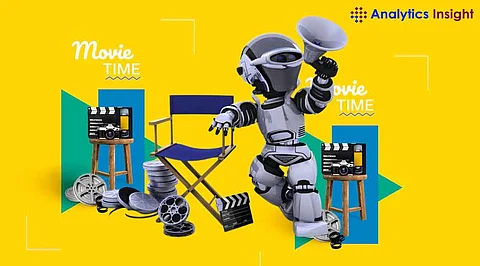

The film industry, a hub of creativity and innovation, is revolutionized by artificial intelligence (AI). From generating story ideas to creating stunning visual effects, AI is transforming filmmaking processes, and making them more efficient and personalized. Here’s how AI is reshaping the cinematic landscape.
AI tools assist screenwriters by analyzing successful plot structures and character arcs to predict a script’s potential success. Tools like ScriptBook generate story ideas, plot outlines, or even dialogue suggestions, streamlining the creative process.
For example, Warner Bros. used IBM Watson to analyze hundreds of horror scripts, gaining insights to enhance storytelling in their movie Morgan. AI’s ability to process vast amounts of data ensures writers have actionable feedback to craft engaging narratives.
Post-production, traditionally labor-intensive, is now more efficient thanks to AI. Tools like Adobe Sensei automate video editing, organizing raw footage based on pre-set rules. AI also simplifies complex tasks such as color grading and audio enhancement.
AI’s role in visual effects is noteworthy. For instance, The Irishman employed AI to de-age its actors, creating younger versions of Robert De Niro and Al Pacino by analyzing extensive facial data. These advancements enable filmmakers to bring ambitious ideas to life without exceeding budgets.
AI not only reach the area of production but also affects the viewer's indulge in films. Many streaming services such as Netflix rely on algorithms formed by AI in the identification of a user’s behavior and subsequently recommend content which will be useful to the user.
Further, using AI for features such as cinelytic we can even make customized trailers of movies reaching out to niche segments of people that range from the age group, gender and even their preference. In interactive storytelling, as seen in Netflix’s Black Mirror and even Bandersnatch, the viewers also get to decide the plot.
AI’s integration into the film industry delivers:
- Efficiency: That is true because most of the time, editing and VFX are time-consuming but automating helps in saving time.
- Enhanced Creativity: Writers and Directors have an opportunity to get information to develop the script they are handling.
- Personalized Experiences: This meant that AI estimated which content the viewer found more interesting and proceeded to provide more of what met their preferences.
Its for this reason that AI remains a constant and ever-improving segment, so it will usher in changes in the filmmaking industry. While the current technology being utilized has even smarter tools for the creators and more interactive substantial experiences for the viewer, future cinema is definitely looking bright.
